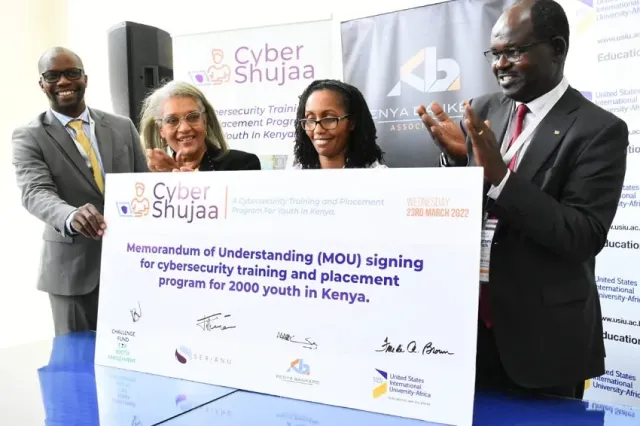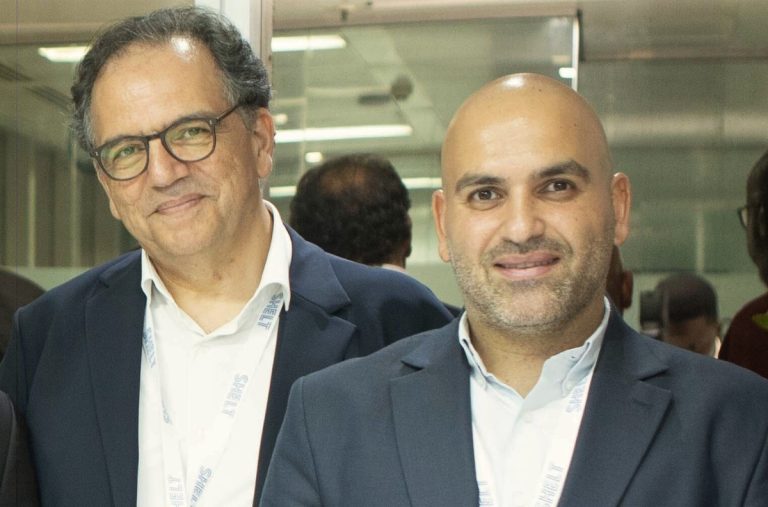Kenya’s New Cyber Shujaa Program To Equip 2,000 Youth

A cyber training project has been launched by USIU-Africa, Kenya Bankers Association, and Serianu.
The program will train 2,000 people, bolstering Kenya’s cyber security capabilities.
The training program, dubbed Cyber Shujaa, is unique in that it develops and implements a standardized cybersecurity employment framework.
It acts as a link between industry and educational institutions. It aims to hire 1,000 women to work in the field of cybersecurity. A minimum of 30 young people will be supported as cybersecurity entrepreneurs as part of the program.

Professor Freida Brown, Vice Chancellor, USIU-Africa, reaffirmed the University’s commitment to action research, which calls for interventions and co-creation of knowledge with stakeholders, during the signing of the Memorandum of Understanding between the consortium members.
He goes on to say that this project strengthens our university-industry-government-civil society ties, paving the way for future collaborations. The curriculum will rebrand as a cybersecurity institute that will offer a nationally recognized cybersecurity certification. Prof. Frieda discloses that in the next five years, the Center for Informatics Research and Innovation (CIRI) aspires to be a regional leader and a major player in cybersecurity challenges on the continent.
Experts in cyber-security demand
The shortage of trained cyber security experts is a global issue that will necessitate the hiring of 2 million new professionals. It’s just as bad at the local level. According to Serianu’s analysis, Kenya needs to hire at least 1,000 new professionals per year. According to the findings, there is a critical shortage of experienced cybersecurity workers. Kenya’s weight of rising cybercrime was also demonstrated. Annual losses are estimated to be in the region of Kshs 10 billion, worsened by a significant shortage of well-trained cybersecurity personnel.
“We recognized that overcoming the local skills gap requires a multi-agency approach to providing a pipeline for learners to transfer into the business as practicing cybersecurity executives,” stated William Makatiani, Serianu’s Chief Executive Officer.
Due to the nature of their business and the fact that it touches every element of the economy, Kenya Bankers CEO Dr. Habil Olaka stated that the financial services sector was a vital stakeholder in its success.
Defending against cybercrime
Financial institutions’ rapid adoption of technology has resulted in an increase in digital fraud. Identity thieves, social engineers, and phishing emails are still being used to target vulnerable users. They are able to take advantage of consumers’ lack of awareness.
The current fraud trends pose a threat to the economic achievements made over the last few decades. As a result, it is necessary for all stakeholders to collaborate in order to contain it. This collaboration will take a novel approach to capacity development and skill development.
A three-pronged strategy to education and training for rapid skilling and placement will lessen the economy’s vulnerability to marauding cybercriminals who are unconstrained by territorial limits.
Dr. Olaka continued, “As the umbrella body of commercial banks, the Kenya Bankers Association remains committed to applying innovative solutions to security challenges and will continue to engage in partnerships that seek to deliver value to our stakeholders, the banking public, and the economy at large.”







